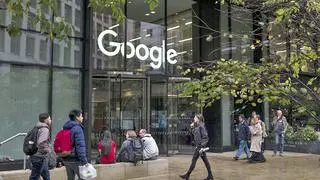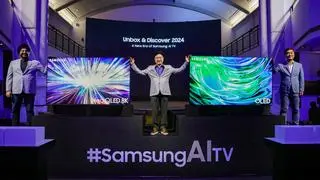Twitter Inc’s next chief executive officer faces a crucial challenge as the company seeks to appease Wall Street after this week's management shake-up — helping disaffected advertisers connect with users.
And many advertisers, analysts and investors say Twitter already has the right person for the job: not interim CEO Jack Dorsey but Adam Bain, the company's president and head of revenue, who has emerged as an early favourite.
Twitter’s outgoing chief executive, Dick Costolo, resigned last week amid pressure from investors to increase the user base and improve what's known as direct response advertising, the most lucrative type on the micro-blogging site.
Those ads prompt users to take an action, such as signing up for a website or buying a product. Improving them is central to Twitter's ability to make more money. Before joining Twitter in 2010, Bain served as president of the Fox Audience Network where he was responsible for monetising advertising platforms across News Corp's web properties.
Betting on Bain At Twitter, he has helped aggressively grow the advertising platform. He holds many of the company’s most valuable relationship with advertisers and understands the media business, advertisers said, and could help redirect Twitter so it meets advertisers' demands and makes more money.
For now, advertisers hope the management change will “light a fire” under Twitter, said Adam Epstein, chief executive of adMarketplace, which works with search advertisers. Even though they have discussed ways to improve advertising with Twitter executives, the company has been slow to change. “When you talk to Twitter, you can throw some great ideas on a whiteboard, but there seems to be a lack of urgency,” Epstein said.
They also hope Twitter makes the site easier to use so that more people become regular users and click on ads. Advertisers also want Twitter to provide data that allows them to gather more information on consumers.
Among the challenges of advertising on Twitter are the site's fast-moving news scroll, which makes it less likely users will stop to click on an ad. Facebook and Instagram, by comparison, showcase photos and videos in ads and display them more effectively to users, making it more likely users will click on them.
In April, Costolo said Twitter was forced to cut rates for direct response ads after they failed to deliver as promised. That led the company to cut its revenue forecast for the year as it anticipated making $4-5 million less each quarter.
Half a dozen ad executives interviewed by Reuters said they spend more money on rival platforms, such as Facebook and Google, because they have more users, better capture attention and provide more data on how advertisers can target consumers.
Dorsey, who served as CEO from 2007 to 2008 before management ousted him, said the CEO search has not yet begun but has not ruled out his interest in the job permanently. He said he would not change the company's strategy. Twitter's user base has been eclipsed by its competitors. It has 302 million users, compared with Facebook Inc’s 1.4 billion and WhatsApp’s 800 million.
Advertisers said the main problem lies in what they called Twitter's “untapped potential” in reaching its millions of users.
About 80-90 per cent of users scan Twitter content but don’t tweet, according to Affinio, which measures community engagement on digital platforms. Even though about one billion people have tried the service, most do not become regular users.
“Twitter needs to be able to build a product that consumers know and love and stay in,” said Maura Tuohy, social director at Eleven Inc, an agency that helps brands advertise.
Tie-up with Google Twitter has taken steps to meet some ad buyers' demands. In April, it announced a partnership with Google's online advertising service DoubleClick and marketing technology company TellApart, which helps advertisers measure ad views, clicks and calculate investment returns, to provide more data to advertisers. But it has not announced when those partnerships will go into effect.
But illustrating the complexity of the site's relationship with ads, a study conducted by Twitter found that some of its key attributes, such as including a hashtag or mentioning another account in a tweet, were actually harmful to advertisers.








Comments
Comments have to be in English, and in full sentences. They cannot be abusive or personal. Please abide by our community guidelines for posting your comments.
We have migrated to a new commenting platform. If you are already a registered user of TheHindu Businessline and logged in, you may continue to engage with our articles. If you do not have an account please register and login to post comments. Users can access their older comments by logging into their accounts on Vuukle.